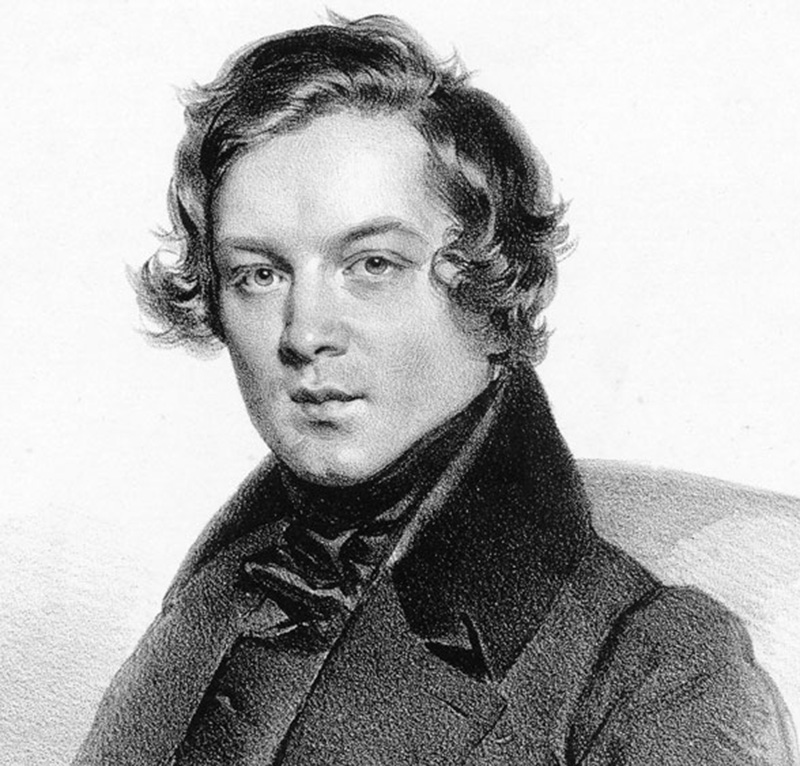Robert Schumann

Born: June 8, 1810, Zwickau, Saxony
Died: July 29, 1856, Bonn, Germany
String Quartet in A Minor, Op. 41, No. 1
- Composed: 1842
- Premiere: September 13, 1842, for Clara Schumann’s 23rd birthday
- Duration: approx. 25 minutes
By the early 1840s, Clara Schumann had already expressed gentle skepticism regarding her husband Robert’s newfound interest in writing string quartets, questioning whether he knew enough about the instruments to write effectively and idiomatically for them. Robert Schumann’s three Op. 41 quartets seem to be his rebuttal. By 1842, after composing his first two symphonies and various other chamber music works, his skills were sharpened and his vision for his string quartets was at last clear.
Schumann dedicated the works to the musician whose own quartets had inspired those of Schumann: his friend Felix Mendelssohn. As he later explained to his publisher in December 1847, “The quartets of mine that you published have regained special significance through the death of Mendelssohn, to whom they are dedicated. I still regard them as my best works of that earlier period, and Mendelssohn often rebuked me in the same spirit.”
Schumann came to his task well prepared. His diaries from April 1842 show a period of intensive study of quartets by Haydn, Mozart and Beethoven before he began experimenting with the genre on his own. With his typical speed, he completed three works, one after another, sketching out the quartets in A minor, F and A in just six weeks, between early June and mid-July. The first drafts were followed by a series of informal private performances by the Leipzig concertmaster Ferdinand David, during which many changes were made. It was not until January 1843 that the composer sent the scores to print as his Op. 41, together with the dedication to Mendelssohn. Although they remain his only string quartets, they sprang from his enthusiasm for the Romanticism movement, and they opened up a wealth of new expressive possibilities for the genre.
In the A minor quartet, a slow, polyphonic introduction is followed by a tuneful Allegro in F major, whose cantabile themes hardly forewarn the listener of the dense development that follows. The highly Romantic Scherzo— another unique feature in the history of the string quartet—is formulated here as a rondo, in which the second episode slows to a calmer intermezzo. The subsequent Adagio in F major invokes—or is it an intentional quote?—the Adagio from Beethoven’s Ninth Symphony, and the Presto finale is founded on a series of playful motives that recall Haydn as much as Mozart, only to be interrupted by a pastorale, complete with the drone of shepherds’ pipes.
Although inspired by the pieces he studied, Schumann’s string quartets are works sui generis, evading comparison with those of his contemporaries. In them we hear the intimacy of Schumann’s lieder combined with Beethoven’s nostalgia, tinged with harmonies that evoke the best of Schumann’s own piano works.
—Dr. Scot Buzza